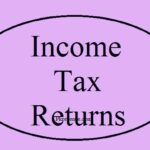KARACHI: The tax collection from salary income of companies’ directors has increased by 93 percent during first six months of current fiscal year.
According to Large Taxpayers Unit (LTU) Karachi, the major revenue arm of Federal Board of Revenue (FBR), the tax collection increased to Rs2.7 billion during first half (July – December) of current fiscal year as compared with Rs1.4 billion in the corresponding period of the last fiscal year.
The tax officials of LTU Karachi attributed the increase in tax revenue under this head to revision in salary slabs in the budget 2019/2020 which is effective from July 01, 2019.
They said that the tax slab was increased to 35 percent on the salary income above Rs75 million.
The tax officials also attributed the increase in tax revenue to effective monitoring and audit of executives /directors of companies.
They said that previously directors of companies avoid taxes by taking advantage of tax laws.
The salary income has been explained in section 12 of Income Tax Ordinance, 2001.
Salary.— (1) Any salary received by an employee in a tax year, other than salary that is exempt from tax under this Ordinance, shall be chargeable to tax in that year under the head “Salary”.
(2) Salary means any amount received by an employee from any employment, whether of a revenue or capital nature, including —
(a) any pay, wages or other remuneration provided to an employee, including leave pay, payment in lieu of leave, overtime payment, bonus, commission, fees, gratuity or work condition supplements (such as for unpleasant or dangerous working conditions);
(b) any perquisite, whether convertible to money or not;
(c) the amount of any allowance provided by an employer to an employee including a cost of living, subsistence, rent, utilities, education, entertainment or travel allowance, but shall not include any allowance solely expended in the performance of the employee’s duties of employment;
(d) the amount of any expenditure incurred by an employee that is paid or reimbursed by the employer, other than expenditure incurred on behalf of the employer in the performance of the employee’s duties of employment;
(e) the amount of any profits in lieu of, or in addition to, salary or wages, including any amount received —
(i) as consideration for a person’s agreement to enter into an employment relationship;
(ii) as consideration for an employee’s agreement to any conditions of employment or any changes to the employee’s conditions of employment;
(iii) on termination of employment, whether paid voluntarily or under an agreement, including any compensation for redundancy or loss of employment and golden handshake payments;
(iv) from a provident or other fund, to the extent to which the amount is not a repayment of contributions made by the employee to the fund in respect of which the employee was not entitled to a deduction; and
(v) as consideration for an employee’s agreement to a restrictive covenant in respect of any past, present or prospective employment;
(f) any pension or annuity, or any supplement to a pension or annuity; and
(g) any amount chargeable to tax as “Salary” under section 14.
(3) Where an employer agrees to pay the tax chargeable on an employee’s salary, the amount of the employee’s income chargeable under the head “Salary” shall be grossed up by the amount of tax payable by the employer.
(4) No deduction shall be allowed for any expenditure incurred by an employee in deriving amounts chargeable to tax under the head “Salary”.
(5) For the purposes of this Ordinance, an amount or perquisite shall be treated as received by an employee from any employment regardless of whether the amount or perquisite is paid or provided —
(a) by the employee’s employer, an associate of the employer, or by a third party under an arrangement with the employer or an associate of the employer;
(b) by a past employer or a prospective employer; or
(c) to the employee or to an associate of the employee or to a third party under an agreement with the employee or an associate of the employee.



